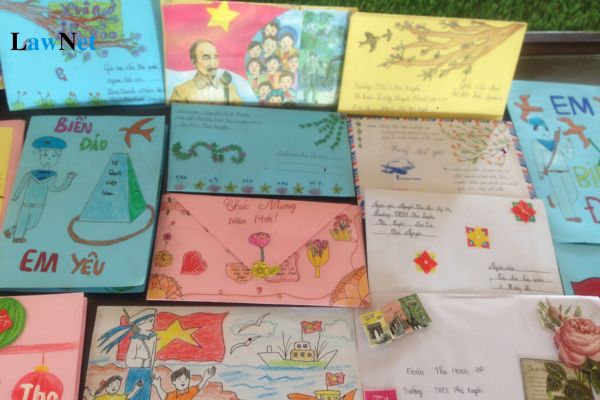What are the 04+ best sample letters to soldiers in Vietnam? How many weeks do 3rd-grade students in Vietnam study and participate in educational activities?
What are the 04+ best sample letters to soldiers in Vietnam?
The list of best letters to soldiers is a collection of letters highly praised for their content, emotion, and creativity. These are often sent from students and young people to soldiers on duty to protect the nation.
Writing letters to soldiers is practiced in the Vietnamese language curriculum for 3rd-grade students.
3rd-grade students can refer to the following best sample letters to soldiers in Vietnam:
|
04+ best sample letters to soldiers in Vietnam 1. Letter to a Soldier (Letter 1) |
*Note: Information is for reference only./.

What are the 04+ best sample letters to soldiers in Vietnam? How many weeks do 3rd-grade students in Vietnam study and participate in educational activities? (Image from the Internet)
How many weeks do 3rd-grade students in Vietnam study and participate in educational activities?
Under Article 5 of Circular 28/2009/TT-BGDDT, amended and supplemented by Clause 3, Article 1 of Circular 15/2017/TT-BGDDT:
Annual working period and rest
1. The working perio of primary school teachers in the academic year is 42 weeks, including:
a) 35 weeks for teaching and educational activities according to the academic year's schedule.
b) 05 weeks for study and professional development.
c) 01 week for preparation for the new academic year.
d) 01 week for end-of-year summaries.
....
The number of weeks primary school students study and participate in educational activities will be similar to the time allocated for teaching and educational activities of teachers, which is 35 weeks/year according to the academic year's schedule.
What are the assessment objectives for 3rd-grade students in Vietnam?
According to Article 3 of the regulations on evaluating primary school students issued with Circular 27/2020/TT-BGDDT, the assessment aims to provide information accurately, promptly, identify studying and training results depending on requirements on formal primary education program and progression of students to guide academic activities, adjust teaching activities to improve education quality, to be specific:
- Assist teachers in adjusting and renovating organization format and education methods in teaching and academic processes; promptly acknowledge efforts and progress of students to motivate, encourage and detect insurmountable obstacles of students to guide, support in order to improve studying and training effectiveness of students; in part to implement objectives of primary education level.
- Help students develop the ability to self-reflect, self-study, adjust studying methods, communicate, cooperate, and be interested in learning and training for improvement.
- Assist students' parents or guardians (hereinafter referred to as “student’s parents”) in assessing their studying and training progress and results, as well as the processes of forming and developing traits and capacities; actively cooperate with schools in educating students.
- Assist education management officials of all levels in promptly directing education activities and renovating teaching and assessment methods to achieve educational effectiveness.
- Assist social organization in acknowledging accurate and objective information, develop social sources for investment in development of education.

